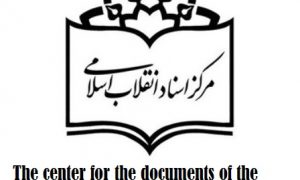Late Ruhullah Husseinian the ex-chairman of the center for the documents of the Islamic revolution has investigated “the relationship between the Baha’is and the forged regime of Israel” and “the Baha’is influence in the ominous regime of Pahlavi”.
Regarding the time conditions of the expansionism of Zionism and the relationship between Iran and Israel, the Shia scholars were extremely sensitive with the Jewish. The Excellency Imam Khomeini (P.H.) said about the Eyalati and Velayati association bill that it might be provided by the Jewish and Zionistic spies in order to destroy independence, economy and the country.
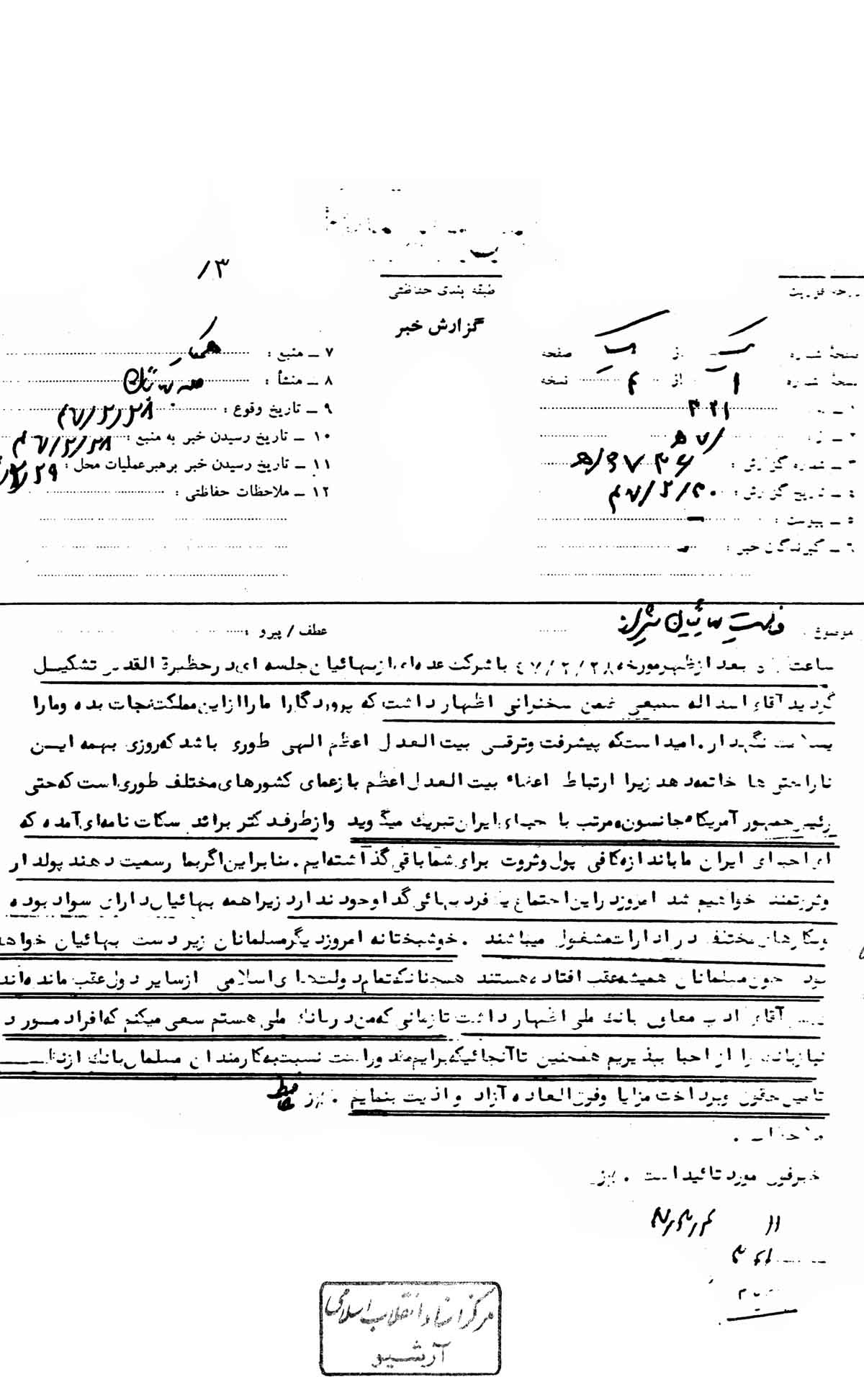
The Excellency Imam Khomeini and other scholars believed that the Iranian Baha’is were the agents of Israel and the bill has been posed and planned to rule on Iran. The subject becomes more sensitive when it is known that the Baha’is considered Iran as the second lands of Baha’is after Israel and the center for rising and capturing the world. Printing their 10-year map, the showed the importance of Iran for Baha’ism.
The Excellency Imam Khomeini wrote for the scholars of Yazd city: “Sirs. You must pay attention that the most sensitive post have been taken over by this cult. They are really the agents of Israel. The danger of Israel for Islam and Iran is severely imminent. A contract with Israel against the Islamic governments has been or will be made. It is necessary for the scholars and orators to make people of all walks of life aware to prevent.”
I this message, Imam Khomeini (P.H.) criticizes the facilities provided by the governments for two thousand people or more from the deviant cult along with exchange and discount for ticket to participate in a seminar in London while they complicate the affairs of the pilgrims to Mecca. Imam Khomeini considered it as an evidence for the government’s bad intention.
Not only the Excellency Imam Khomeini (P.H.) but also other clergymen evaluated that the aim of the bill was to rule on Iran by the Baha’is. Mr. Falsafi said to the government representative: “The aim of this act isn’t women’s participation in the elections. The participation of women isn’t so important that leads all clergymen to arise against it. The bill is a plan against the holy prophet (P.H.) and the holy Quran and the dominance on Muslim by the unclean elements of Baha’is.”
Israel was the first government which recognized Baha’ism as a formal religion formally. Shoqi forced the international Baha’is council-founded by himself- to have relationships with Israel.
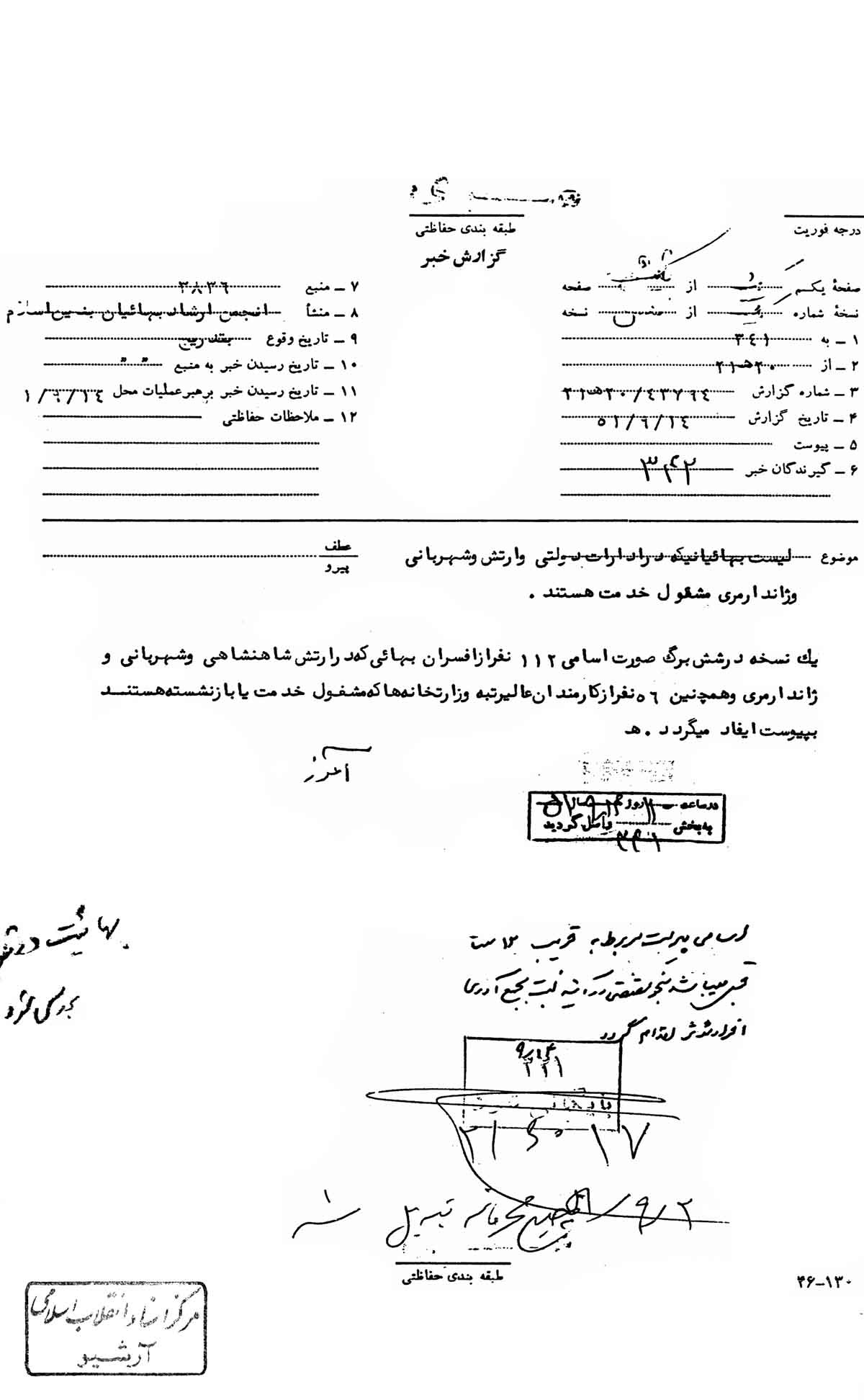
The relationships between the Baha’is and Israel goes back before World War I. the second leader of Baha’is, Abbas Effendi was bestowed the sir title and “knighthood” medal due to spying for England and his services to the British troops against the Ottoman Muslims. Abbas Effendi who was being continually supported by the British troops was buried in Heifa (1300 S.H.)
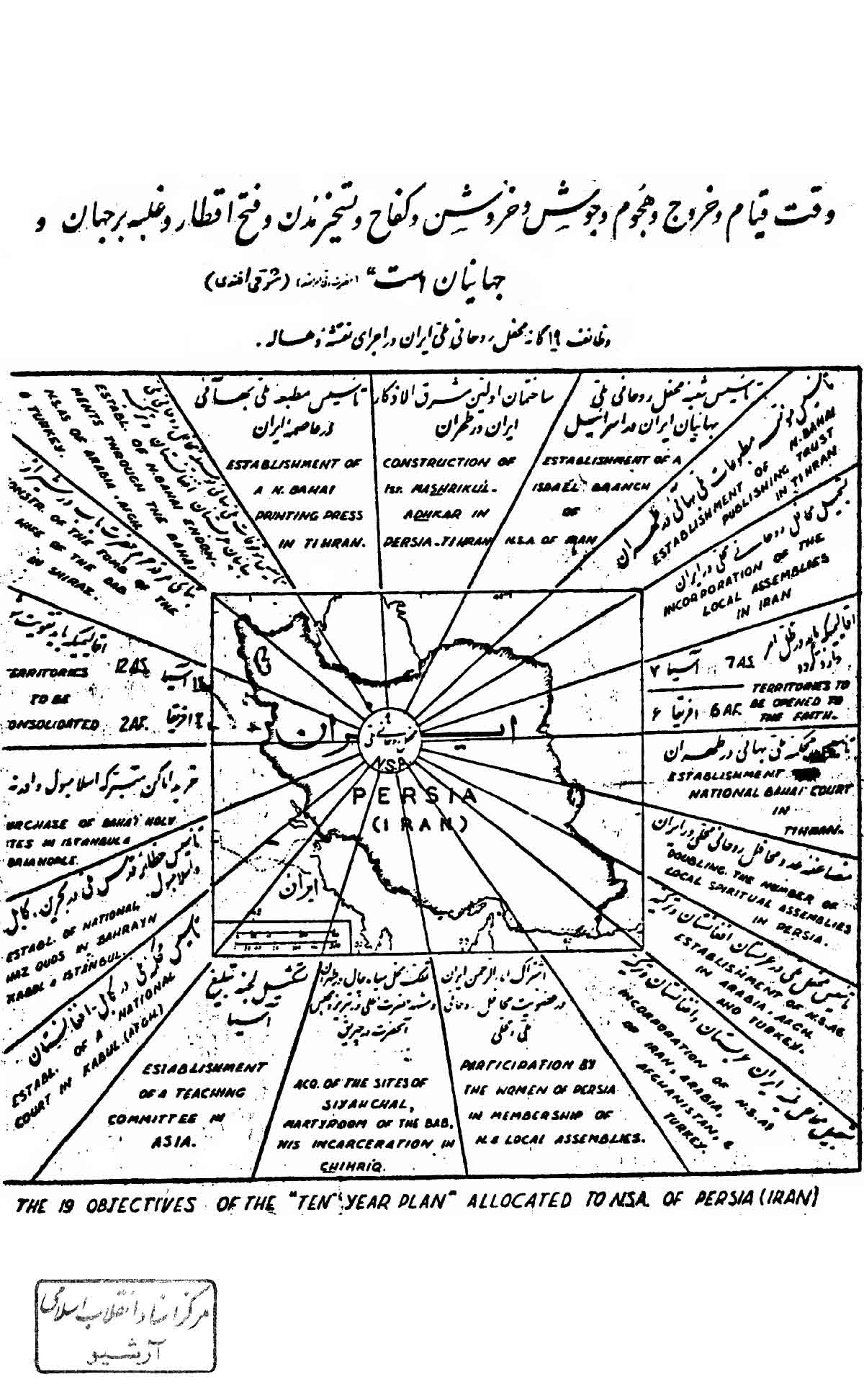
From that time on, Heifa became a holy place for the Baha’is and the center for their gatherings. After the establishment of the usurp government of Israel (1327), Shoqi Effendi, the forth leader of Baha’is considered Palestine land as the main center for Baha’ism.
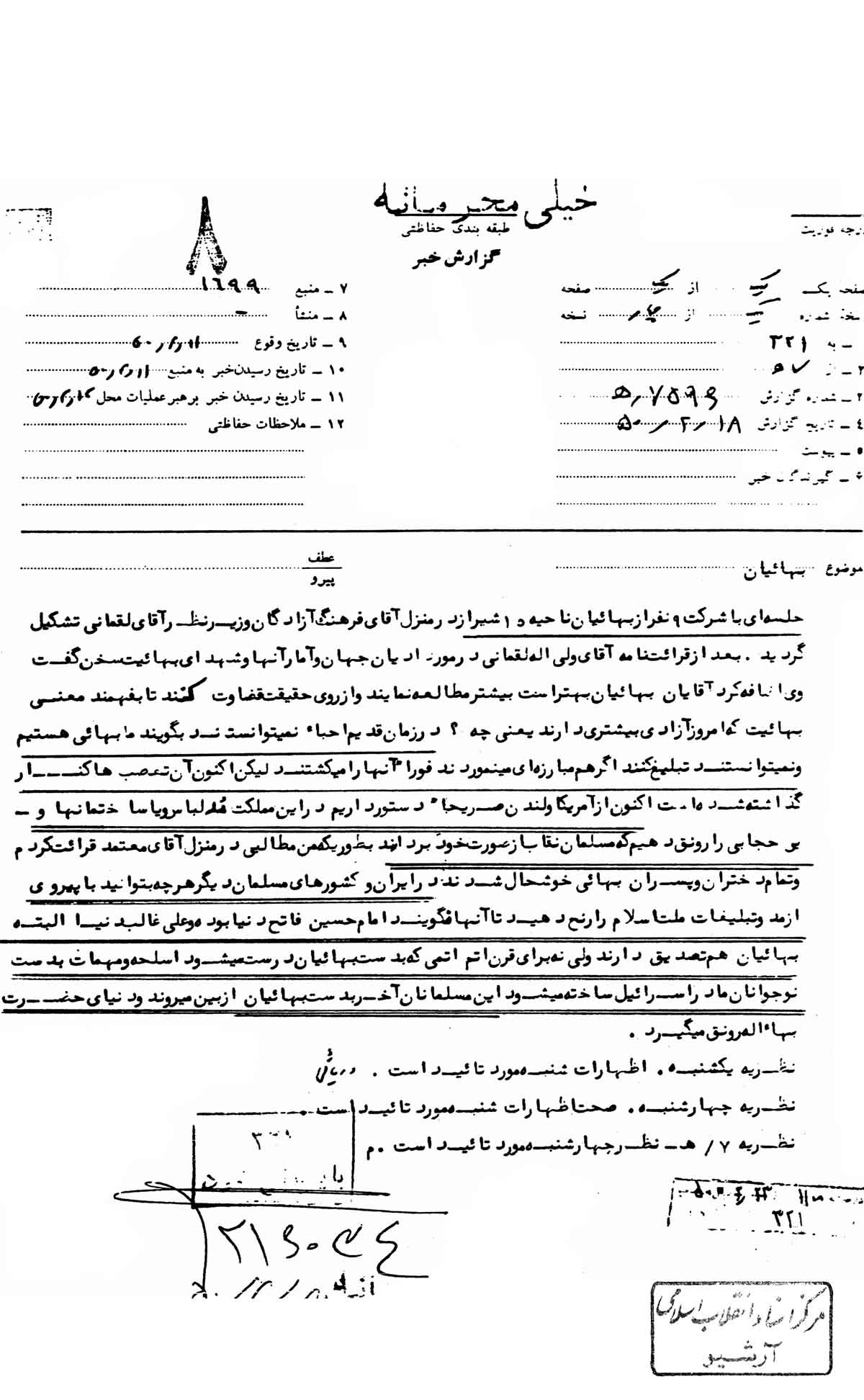
The influence of the Baha’i elements in the government organization of Israel started from Reza Khan’s period of time. Saniee and Ayadi were Baha’is. The names of 112 officers in the Army, police and gendarmerie and 56 high-ranking employees have been presented as Baha’is in 1351 S.H. They were as follows: Asadullah Saniee, Amir Abbas Hoveyda, Mansour Rowhani, LEili Amir Arjomand, Parviz Khosrawani, Ataullah KHosrawani, Farrokh rou Parsa, Manouchehr Shah Qoli, Hojabr Yazdani, Habibullah Sabet Pasal.
The collection of the Baha’is documents are indicating that clergymen especially the Excellency Imam Khomeini were careful and aware. They figured out that the aim for the approval of Eyalati and Velayati bill was the influence of the Baha’is in the Iranian country and the Baha’is were going to occupy the political and economic posts whose aims were in line with Israel ones and were to spy for them.

